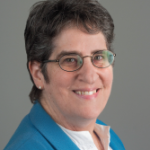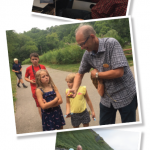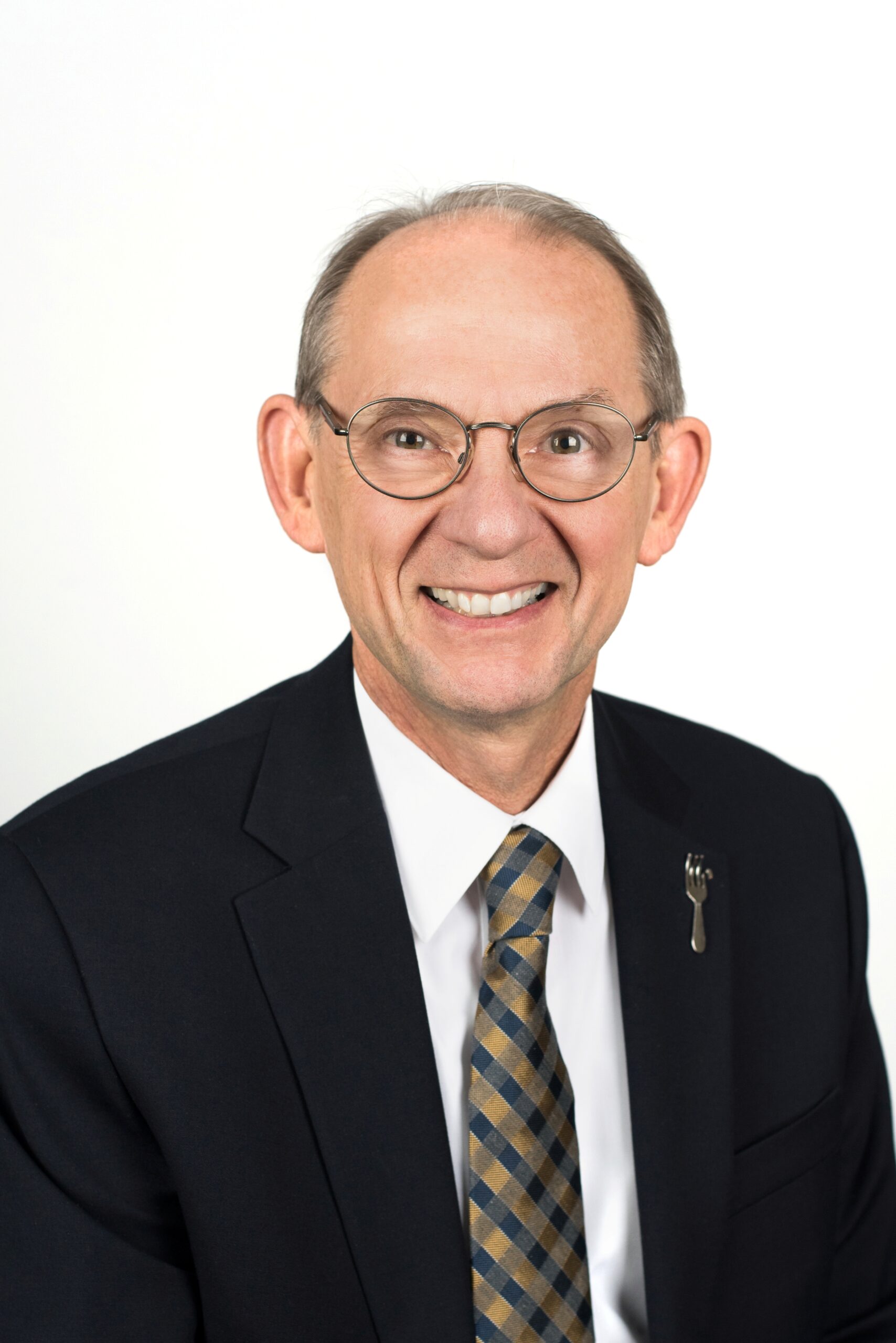 PANLAR Names Eric L. Matteson, MD, a 2023 Master
PANLAR Names Eric L. Matteson, MD, a 2023 Master
Throughout his career at the Mayo Clinic, Rochester, Minn., Eric L. Matteson, MD, currently professor of rheumatology, emeritus, actively engaged with his rheumatology colleagues in Latin America. He participated in conferences, worked on South American publications and brought rheumatology fellows to the Mayo Clinic for training. Collaborations have continued into his retirement—Dr. Matteson is a long-standing scientific advisor on the editorial board for Revista Colombiana de Reumatologia and is currently working on a special edition for that journal focused on autoimmune lung disease. As a testament to his ongoing collaborations, PANLAR named Dr. Matteson a Master of Pan American Rheumatology at the 25th Pan American Congress of Rheumatology, held April 26–29 in Rio de Janeiro.
Although unexpected, Dr. Matteson says, the recognition was gratifying. He has enjoyed attending and presenting at several PANLAR meetings, and has worked with the organization’s representatives in many capacities.
Dr. Matteson’s command of Spanish has improved over the years, he reports, and he can now “give a PowerPoint presentation and talk in Spanish. That’s been fun for me because you learn more about people and their cultures when you know something of their language.”
During his time at the Mayo Clinic, Dr. Matteson took time off to serve with the Indian Health Service, working at the Owyhee Duck Valley Reservation with the Shoshone-Paiute people in Nevada.
“My viewpoint is that healthcare is a right—but that doesn’t mean it’s accessible to everyone. Following the medical ethos, one should provide care and medical education within one’s possibilities to those who are less fortunate.”
Through his affiliation with Minnesota Doctors for People, Dr. Matteson and his wife now travel periodically to San Lucas Tolimán, in the Guatemalan highlands, to work with a hospital that provides outreach and primary care to people in outlying villages.
These trips also afford Dr. Matteson an opportunity to participate in a bird migration monitoring program through a partnership between his local Audubon Society chapter and a Guatemalan monitoring station, thus combining another of his passions.
Dr. Matteson is also involved with the ACR’s Global Engagement Committee, which focuses on global collaborations regarding education, training, research, and volunteering. “It’s richly rewarding to work with people of other cultures,” he says, “and to learn about their health system challenges and to try to help with that.”
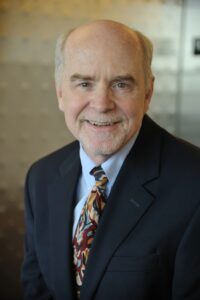 John J. O’Shea, MD, Elected to U.S. National Academy of Sciences
John J. O’Shea, MD, Elected to U.S. National Academy of Sciences
Each spring, at the conclusion of its annual meeting, the U.S. National Academy of Sciences (NAS), Washington, D.C., announces the election of its new members. On May 2, Scientific Director of Intramural Research at National Institute of Arthritis and Musculoskeletal and Skin Diseases (NIAMS) John J. O’Shea, MD, was elected a new member to the NAS in the biomedical sciences section.
At first Dr. O’Shea didn’t see his name on the roster, but then his email inbox was flooded with congratulatory notes. “It was very exciting,” he says, when he realized that he was now “in the Big Leagues!”
Membership in the 160-year-old NAS is widely regarded as a sign of excellence in scientific research. Dr. O’Shea has received numerous other awards and prizes for his work, including the ASCI-Harrington Prize (which The Rheumatologist reported on two years ago), the Howley Prize for Research in Arthritis, the Ross Prize in Molecular Medicine and six NIH Director’s Awards. More important to Dr. O’Shea than this latest honor, though, is “the privilege of working here at the NIH [National Institutes of Health, NIAMS, Bethesda, Md.].”
Dr. O’Shea began his time at the NIH more than 40 years ago and for 18 years has been the NIAMS scientific director. He holds his NIH colleagues in high esteem and values the vigorous, collaborative spirit of research. One of the most exciting facets of his current position is the opportunity to mentor young and developing scientists, he says. More than 70 researchers have come through his laboratory and gone on to faculty positions; more than 40 have attained tenured positions and chairs of their institutions’ departments. And during the period of the pandemic, “it was a real joy to be surrounded by trainees who are on fire about the science—who have energy, commitment, dedication and altruism about this work.”
Dr. O’Shea continues to experience excitement about the evolving understanding of the pathways impinging on inflammation in the autoimmune diseases. Research such as the June 15 study published in the New England Journal of Medicine, “Variant STAT4 and Response to Ruxolitinib in an Autoinflammatory Syndrome,” continues to build on his seminal work with Janus kinase inhibitors and exemplifies the vibrant work at the NIH.
“We’re beginning to understand the logic of all these switches in the genome that control key inflammatory factors,” he says. “It would be wonderful if we could measure all those things in patients in real time and then figure out the combination of medications we should be using [for] any given patient.”
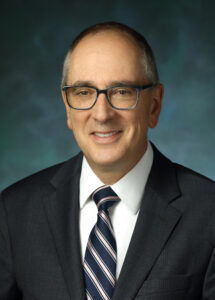 Antony Rosen, MBChB, MS, Elected an American Association for the Advancement of Science Fellow
Antony Rosen, MBChB, MS, Elected an American Association for the Advancement of Science Fellow
Antony Rosen, MBChB, MS, the vice dean for research and director of the Division of Rheumatology, the Johns Hopkins University School of Medicine, Baltimore, has been recognized numerous times for his advances in clinical and translational research, as well as his teaching, mentoring and leadership. Last October, he was elected as a Fellow to the American Association for the Advancement of Science.
Of his election to the AAAS, Dr. Rosen says he feels honored “to be in such strong company,” adding that the society plays an important role in modeling the power of science for humanity.
Born in South Africa, Dr. Rosen launched his scientific career path in medical school, when the curriculum opened his eyes to how the body’s physiology works naturally—and how things go wrong. “It became clear to me that my passion was trying to understand the mechanisms that underlie human disease,” he says.
Dr. Rosen obtained his medical degree at the Medicine University of Cape Town in 1984 and completed his residency at Groote Schuur Hospital in 1987. He then pursued his post doctorate in immunology and cellular biology, working in the Rockefeller University (New York) laboratory of Alan A. Aderem, PhD, who is also from South Africa and is currently professor of immunology and medicine at the University of Washington, Seattle. He believed it was important to incorporate clinical work, so he completed a residency on the Osler Medical Service at Johns Hopkins, followed by a rheumatology fellowship, also at Johns Hopkins.
He believes the best narration of the causes and mechanisms of disease comes from patients: “The subtle things that humans observe about themselves can clue you in if you listen and interact with patients. You can really see disease unravel itself. In my view, that is sacred work.”
Dr. Rosen’s research, often conducted in partnership with his wife, Livia Casciola-Rosen, PhD, has focused on the shared mechanisms of autoimmune rheumatic diseases. Their work has yielded valuable insights into the specificity of immune responses during inflammatory circumstances. His own lab is now focusing on apoptosis and the mechanisms underlying connections between autoimmunity and cancer.
In addition to his research, Dr. Rosen has been key in attracting, and mentoring, younger researchers to the department of medicine.
He received both the Sir William Osler Young and Henry Kunkel Young Investigator awards in the late 1990s, and believes it is the responsibility of senior scientists to enable younger people to bring creative insight to the research. “I think that fields leap when new people come. They can look at the basic assumptions in ways that haven’t been approached before.”
Gretchen Henkel is a health and medical journalist based in California.
